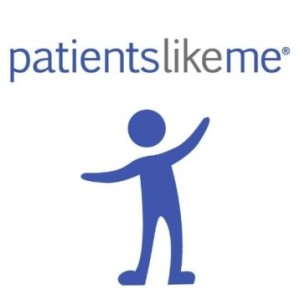
What if doctors prescribed community support resources with lifestyle changes instead of just medicine? What if your referral was to an outside group or program rather than to a specialist?
There are many organizations and resources outside of the traditional health system that can act as ambassadors for promoting and maintaining health, and when utilized appropriately, can prove beneficial for patient, provider and health system alike. Linking clinical, community and public health systems can create a win-win scenario for all involved. Yet, despite sharing common goals, most entities continue to work independently of each other. These silos of care create a situation where a patient is treated in sections and not as a whole person, leaving many aspects of their lives unaddressed.
The Challenge of Chronic Conditions
The effects of a chronic condition extend far beyond physical symptoms, having a significant impact on all aspects of a person’s life. Social, financial and lifestyle changes that occur as a result of a condition can make the situation even harder for a person. I have learned for myself, traditional medicine alone has not addressed all the aspects of my life that have been impacted by my health condition. Therein lies an opportunity. By acquainting and connecting patients with resources outside the health system, providers offer patients another choice, another opportunity to possibly uncover ways to achieve a happier and healthier life.
In Search of Answers and Support
 I have had no one in my life to help or support me while I’ve been ill. I have had to learn how to handle my illness and all the challenges that came along with it on my own until I found some of the groups I am active in now. That was no small challenge since few support groups focused on my uncommon but complex medical conditions. Through my own personal research, I identified some local support groups that focus on specific symptoms or on diseases similar to mine. I attend an in-person, an ACPA (anti-citrullinated protein antibody ) chronic pain group weekly, the Harrisburg Lyme disease group monthly and the Lupus Foundation support group monthly. I also participate in several groups and blogs online, like www.Inspire.com, rare disease support groups and www.PatientsLikeMe.com, to name a few. I also get a lot out of giving back and participate in several patient advisory online forums and in-person groups.
I have had no one in my life to help or support me while I’ve been ill. I have had to learn how to handle my illness and all the challenges that came along with it on my own until I found some of the groups I am active in now. That was no small challenge since few support groups focused on my uncommon but complex medical conditions. Through my own personal research, I identified some local support groups that focus on specific symptoms or on diseases similar to mine. I attend an in-person, an ACPA (anti-citrullinated protein antibody ) chronic pain group weekly, the Harrisburg Lyme disease group monthly and the Lupus Foundation support group monthly. I also participate in several groups and blogs online, like www.Inspire.com, rare disease support groups and www.PatientsLikeMe.com, to name a few. I also get a lot out of giving back and participate in several patient advisory online forums and in-person groups.
A Safe Haven
The peer-to-peer connection between patients in these groups creates an environment free of judgment and encourages growth. Being a young person, I can see when telling others my age about some of the stuff I go through, even my friends, it makes them uncomfortable. This has conditioned me to hide it, but when I am surrounded by those who understand, I feel safe enough to be honest about what is really going on with me. These times when I have felt comfortable have given me opportunities to grow mentally and spiritually, when previously I had no place where I felt comfortable enough to do so.
A Source of Empowerment
 I have also gained new knowledge through my interactions with the others involved in these programs. My medical situation is very complicated and there is no standard protocol for my providers to follow regarding treatment. It has often left to me to come up with new ideas to manage and improve my health. Being well informed about their own illness, others in the group have made me aware of new treatments before they hit the market. They’ve shown me new conclusions that have been made through recent studies and made me aware of things I should consider, that I would not have thought of on my own. We each share our experiences of things we’ve tried that either have helped or have gone wrong to help guide each other, in hopes that we all don’t repeat the same mistakes and avoid some of the suffering that others before us have had to go through.
I have also gained new knowledge through my interactions with the others involved in these programs. My medical situation is very complicated and there is no standard protocol for my providers to follow regarding treatment. It has often left to me to come up with new ideas to manage and improve my health. Being well informed about their own illness, others in the group have made me aware of new treatments before they hit the market. They’ve shown me new conclusions that have been made through recent studies and made me aware of things I should consider, that I would not have thought of on my own. We each share our experiences of things we’ve tried that either have helped or have gone wrong to help guide each other, in hopes that we all don’t repeat the same mistakes and avoid some of the suffering that others before us have had to go through.
These resources have decreased my dependence on my providers, reduced the frequency of office visits, trips to the hospital and emergency phone calls. They’ve also provided consistent , timely support and increased my knowledge base. I have learned through the experience of other patients to make better decisions and act in a manner that improves health.
A Patient’s Wish
My only wish is that I would have found these resources and support groups sooner. Despite having many medical professionals involved in my care, no one ever made me aware or encouraged me to seek out these resources. Consequently, hoping that it will save them from some of the suffering that I went through before finding these avenues of support, I now regularly urge others trying to manage any kind of chronic condition to seek out help by other means, in addition to their regular medical endeavors.
Sharing the Burden
When patients are made aware of and utilize outside agencies, programs and community/patient-based support in addition to traditional healthcare, they are not the only ones who benefit. The responsibility of supporting patients is spread across a broader spectrum of groups and organizations, thereby reducing demands placed on any one party. It also reduces the burden on caretakers who often feel overwhelmed and experience burnout.
At the same time, the rate of adherence to provider recommendations can often be enhanced when patients are adequately supported as they make these changes. Participating in programs/groups can offer a person the support they need while going through a difficult time. When people feel cared for and supported, patient satisfaction increases and outcomes are improved.
A Step toward Person-Centered Care
Making these resources available addresses not only the clinical side of medicine but also the humanistic side. It is another step towards person-centered care. It acknowledges and addresses the needs of the whole person, including the social considerations of their situation, and doesn’t solely focus on treating the medical concerns.
A Call to Action
In ignoring available community resources and support agencies, the majority of the burden to promote and maintain health is placed solely on the care providers, or falls on the patients, themselves, as it was in my case. Conversely, if more healthcare providers encouraged their patients to participate in other supporting programs and groups in concert with traditional health management, it could promote happier, healthier, better informed and further engaged patients, which would benefit everyone involved.





1 Comment
Great article. Some excellent points.